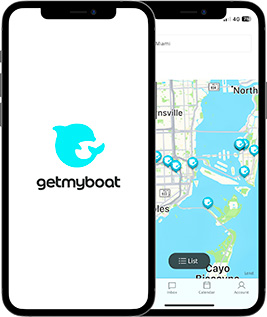Tampa, situated on Florida's western coast, is renowned for its abundant sunshine, coastal beaches, and a thriving ecosystem, housing diverse marine species like dolphins, manatees, and sea turtles. The bay surrounding the city also boasts several islands, with access limited to boats.
All operators affiliated with GetMyBoat are obligated to ensure legal and full compliance with local regulations. This involves procuring the necessary registrations, passes, permits, and satisfying vessel and captain prerequisites, using appropriate docks and water areas for commercial activities, and adhering to any other local laws and facility guidelines. To assist you, we've compiled essential information for boating in Tampa, Florida.
The Florida Boating Safety Act of 2022 (SB 606):
Effective from January 1, 2023, SB 606 is a new law designed to enhance safety on Florida's waterways. It accomplishes this by increasing penalties for violations, implementing a licensing system for boat rental providers, and introducing new criteria for the operation of boat rental businesses.
Vessel Titling and Registration:
To register your vessel, visit the county tax collector or license plate agent. To establish ownership, you can provide a bill of sale, builder's contract, manufacturer's documentation, federal marine paperwork, or other acceptable proof. If your boat requires a title, obtain it before proceeding with registration. For more information, consult the Florida Highway Safety and Motor Vehicles website.
Insurance:
To guarantee passenger safety, protect your business interests, and adhere to legal mandates while operating a boat rental service, it is crucial to have the appropriate insurance coverage. For guidance in determining the necessary coverage, please reach out to our affiliated partner, BCI.
Boating Safety Education Card:
Anyone born after January 1, 1988, intending to pilot a boat in Florida waters equipped with a motor of 10 horsepower or more must possess a Boating Safety Card.
Captains License:
Every captain is required to hold an active U.S. Coast Guard license, which must be presented to the Commission for verification. Vessels accommodating six or fewer passengers require a 6-pack license, while those accommodating more than six passengers need a Master's Captain's license. The captain holds full responsibility for ensuring the safe operation of the charter boat and the well-being of all passengers on board. For more information on obtaining the license, visit the Mariners Learning System website.
Passenger Pick Up/ Drop Off:
Several places allow boat drop-offs and pickups for rentals, and here are a few with designated passenger areas. Before finalizing your plans, be sure to verify the pickup and drop-off policies with the marina or dock.
- Lowry Park Boat Ramp: Located at 1204 W Flora St. Tampa, FL 33604
- Gandy Boat Ramp: Located at 5108 W Gandy Blvd. Tampa, FL 33611
Florida Fish and Wildlife:
Before offering commercial fishing services and charging fees, secure a Charter Captain or Boat License in Florida. Adhere to U.S. Coast Guard regulations for saltwater fishing guides. Operators of commercial vessels must possess a Captain's license or Merchant Mariner Credential.
A Charter Captain License allows certified captains to work on various boats but mandates a valid Coast Guard License for passenger vessels. Commercially used boats must be registered or hold a U.S. Coast Guard commercial use certificate.
Charter Boat Licenses are specific to each vessel and intended for commercial use, requiring registration or a U.S. Coast Guard commercial use certificate.
To obtain an FWC Charter Captain license, a Coast Guard Captain's license is a prerequisite. For more information on the Coast Guard Captain's license, contact 1-888-427-5662 or visit the USCG website.
Additional Regulations:
- Operators of for-hire vessels must hold a valid for-hire vessel operator license issued by the City of Tampa.
- Prior to operating, vessels must undergo inspection and receive approval from the City of Tampa.
- Vessels are required to have specific safety equipment on board, including life jackets, fire extinguishers, and first-aid kits.
- Adhere to all relevant navigation and safety regulations established by the US Coast Guard (USCG) and the City of Tampa.
- Operators of commercial vessels must possess a valid commercial vessel operator license issued in the state of Florida.
- Commercial vessels must prominently display a valid commercial vessel registration decal.
- It is mandatory for commercial vessels to carry a valid saltwater products license on board.
- Safety equipment such as life jackets, fire extinguishers, and first-aid kits must be present on board passenger vessels.
- Specific vessels are required to hold both a valid City of Tampa passenger vessel permit and a passenger vessel operator license.
Resources:















